Abstract
Play skills were taught to eight profoundly mentally retarded adults in two interrelated experiments. In Experiment 1, a multiple baseline across subjects design was used to assess the efficacy of verbal and physical prompts on independent play. In Experiment 2, the same subjects and experimental procedures were used to develop social play. Verbal prompting and graduated physical guidance procedures were found to be effective in substantially increasing independent play in Experiment 1 and social play in Experiment 2. Positive changes were also observed in collateral behaviors. Inappropriate play decreased slightly and stereotypy decreased to very low levels. Social interaction increased substantially in Experiment 2 when social play was targeted but little change was observed in Experiment 1 when only independent play was targeted. Treatment gains were maintained for 26 weeks in Experiment 1 and 10 weeks in Experiment 2. In addition, the treatment gains were generalized across subjects and settings in Experiment 2. Finally, regular follow-up checks showed that independent and social play remained in the repertoire of the subjects for 12 months following the termination of programmed maintenance.
Full text
PDF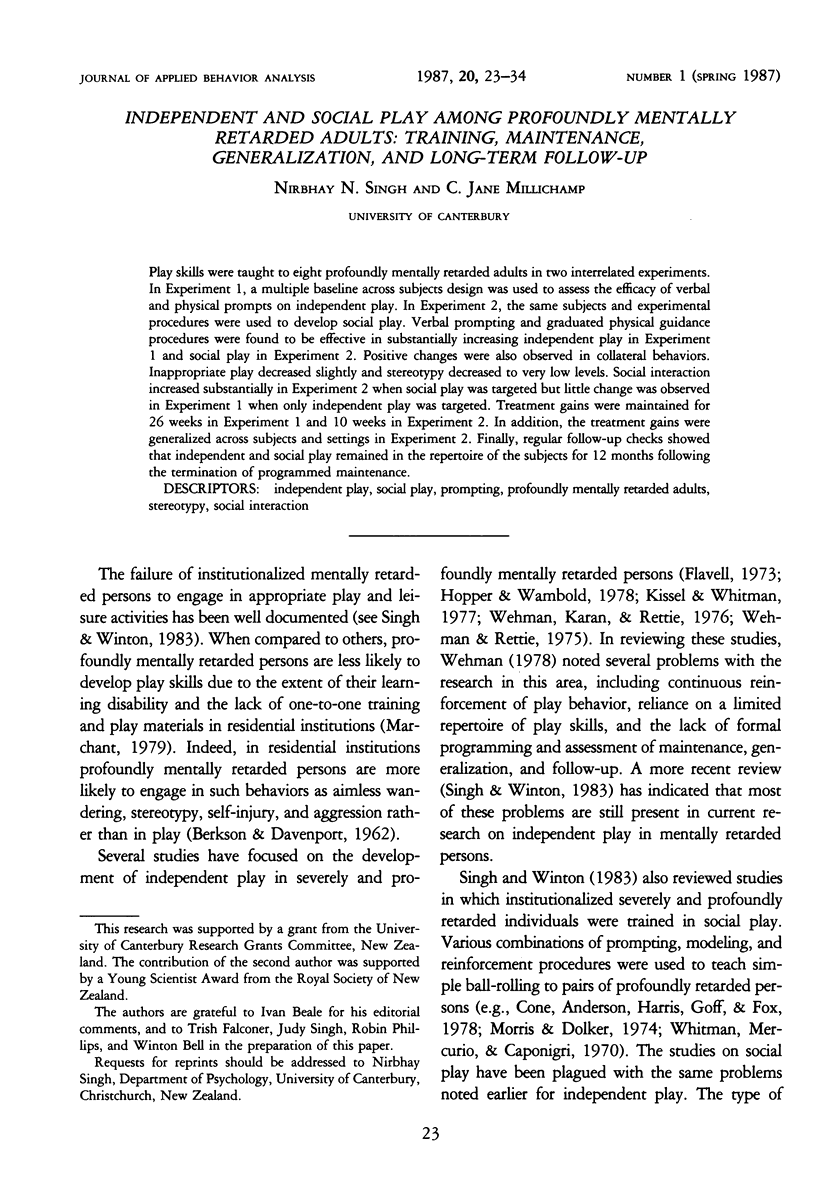
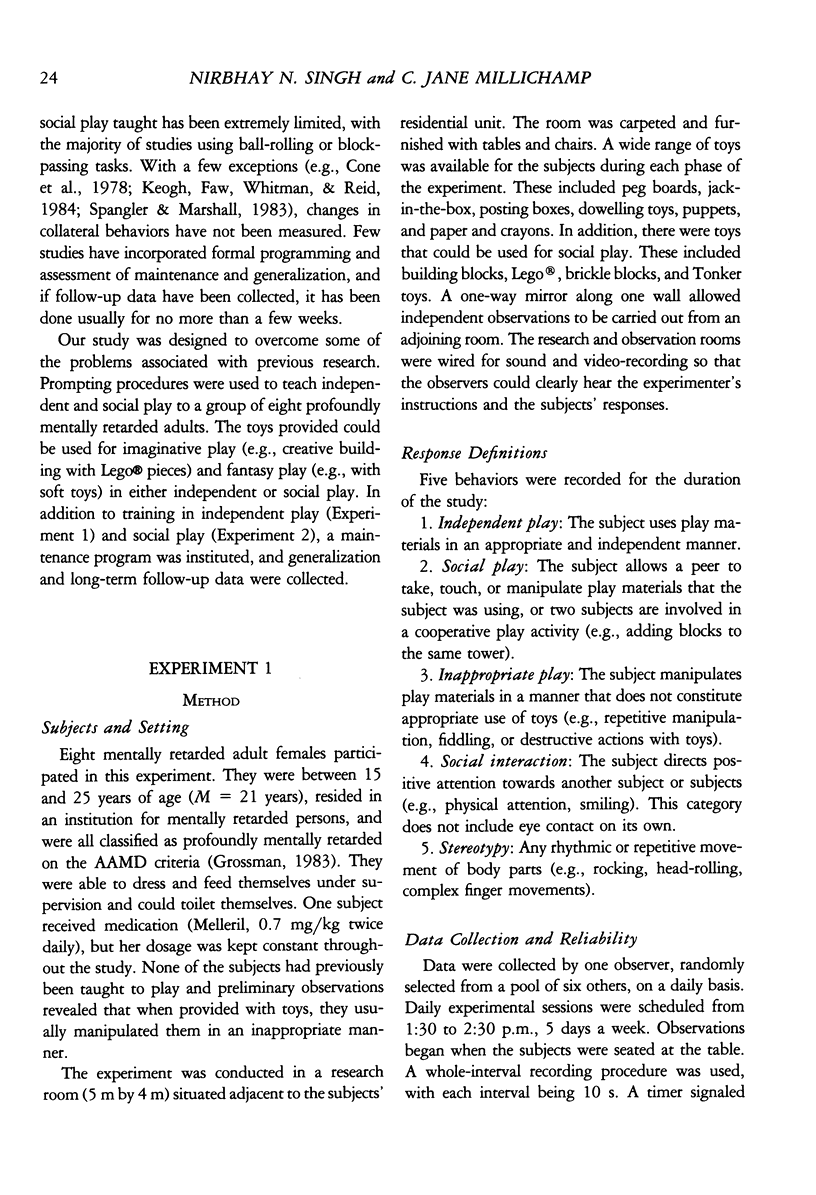
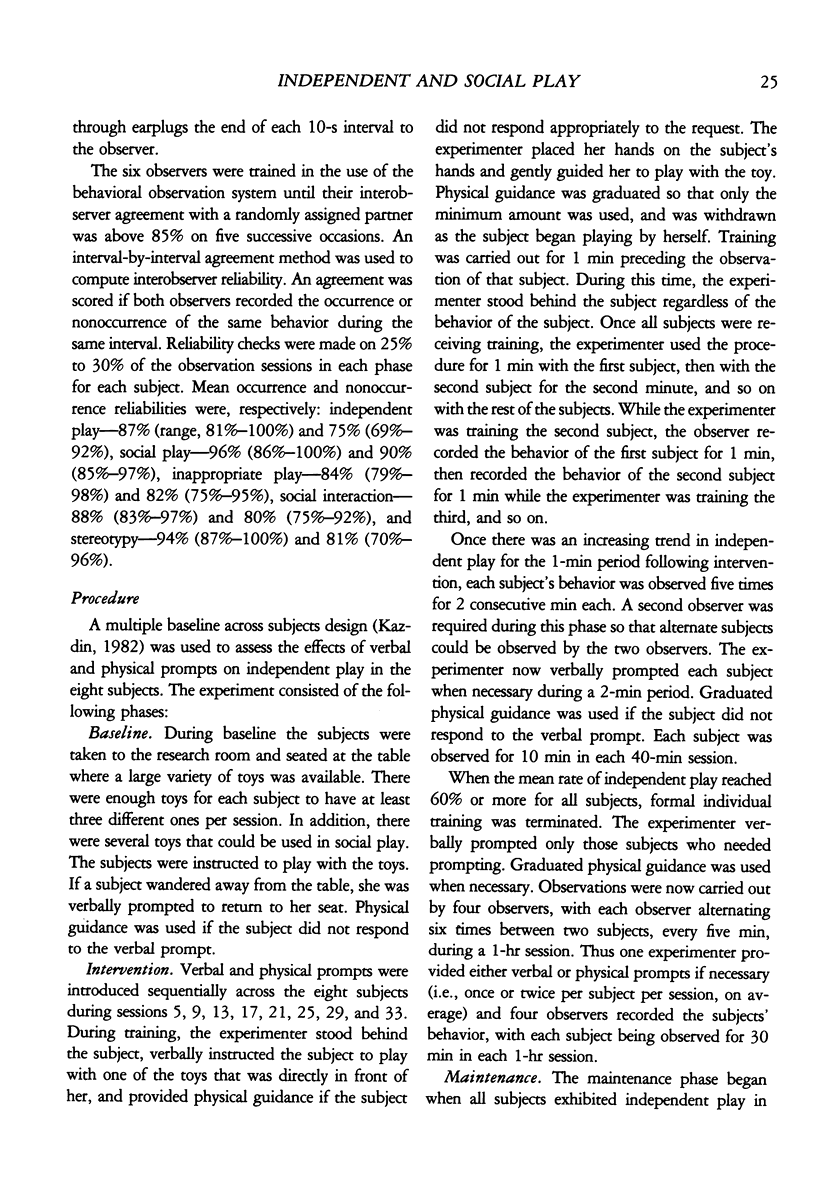
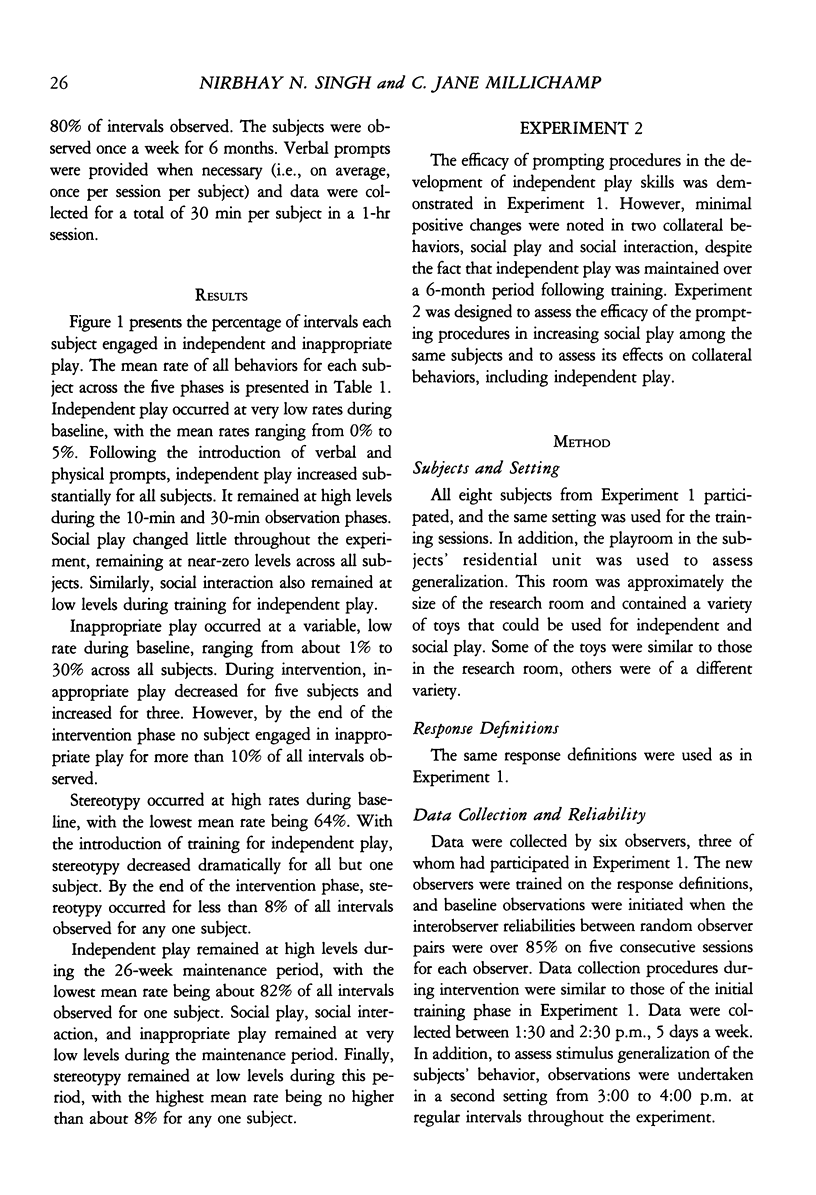
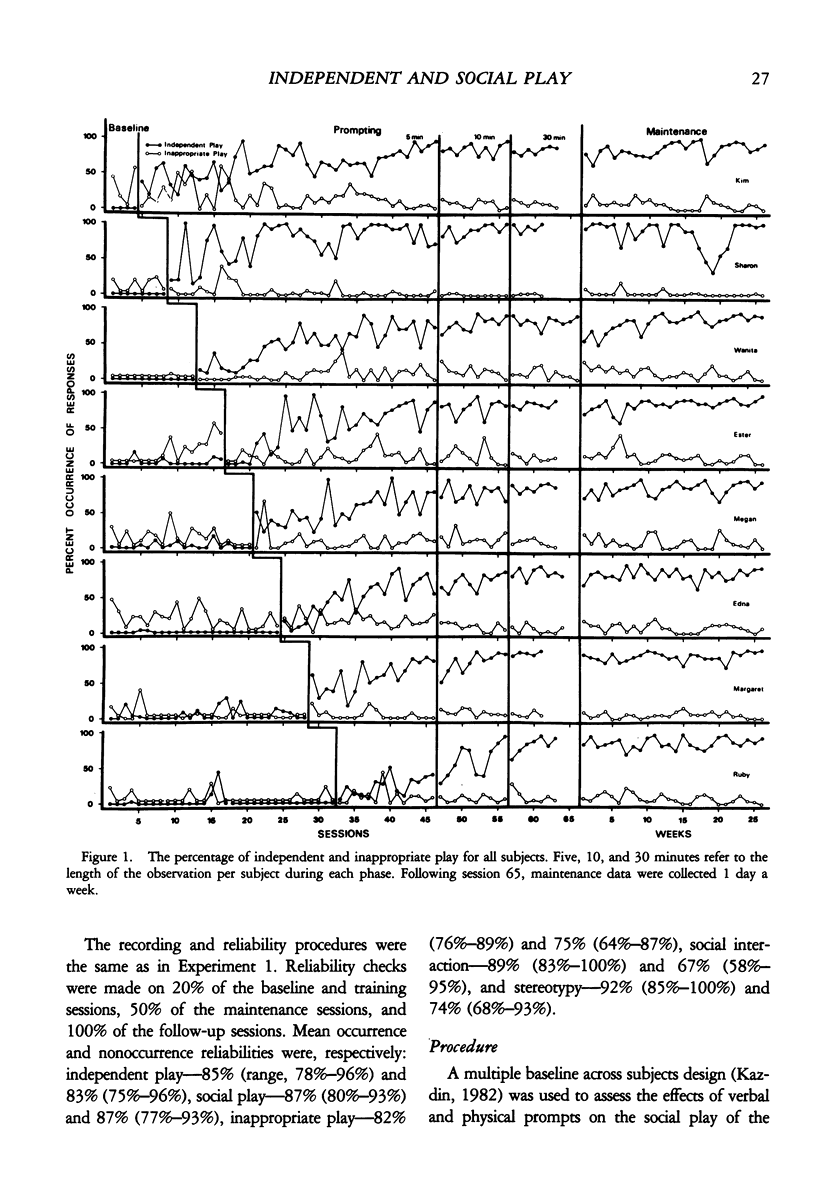
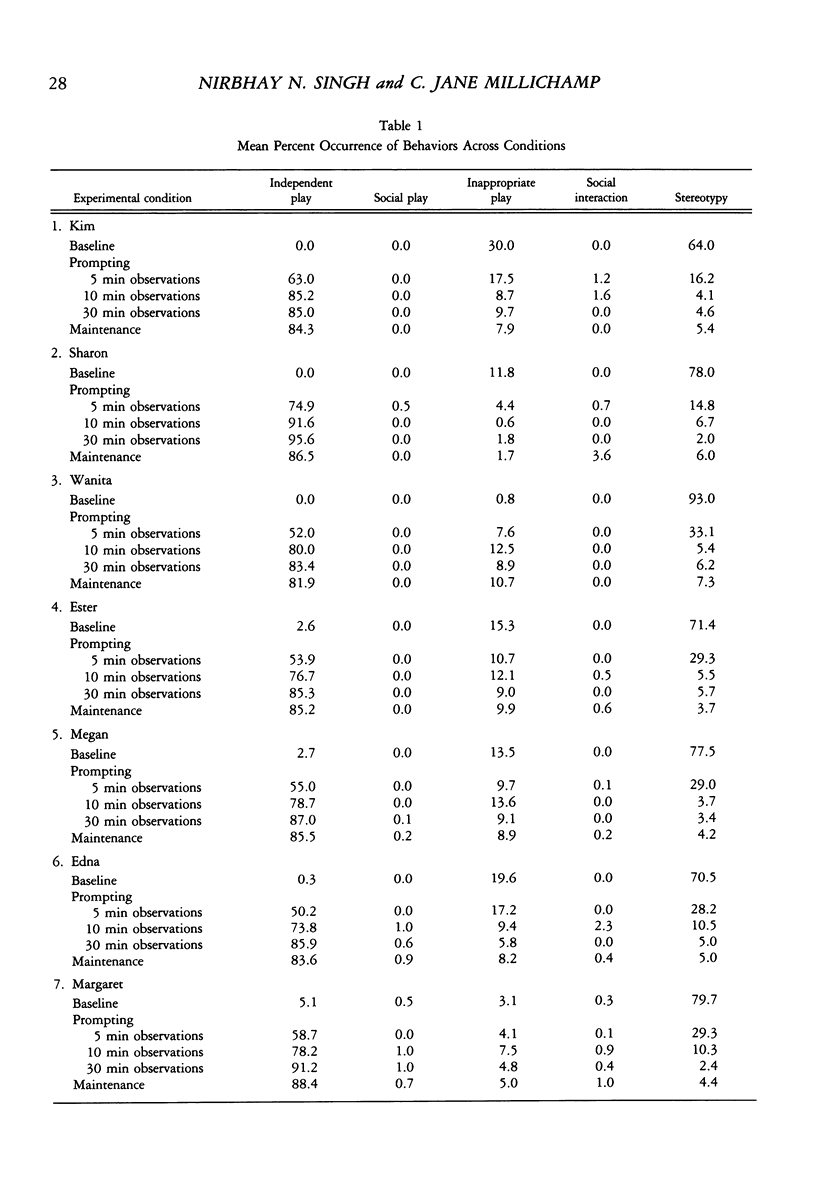
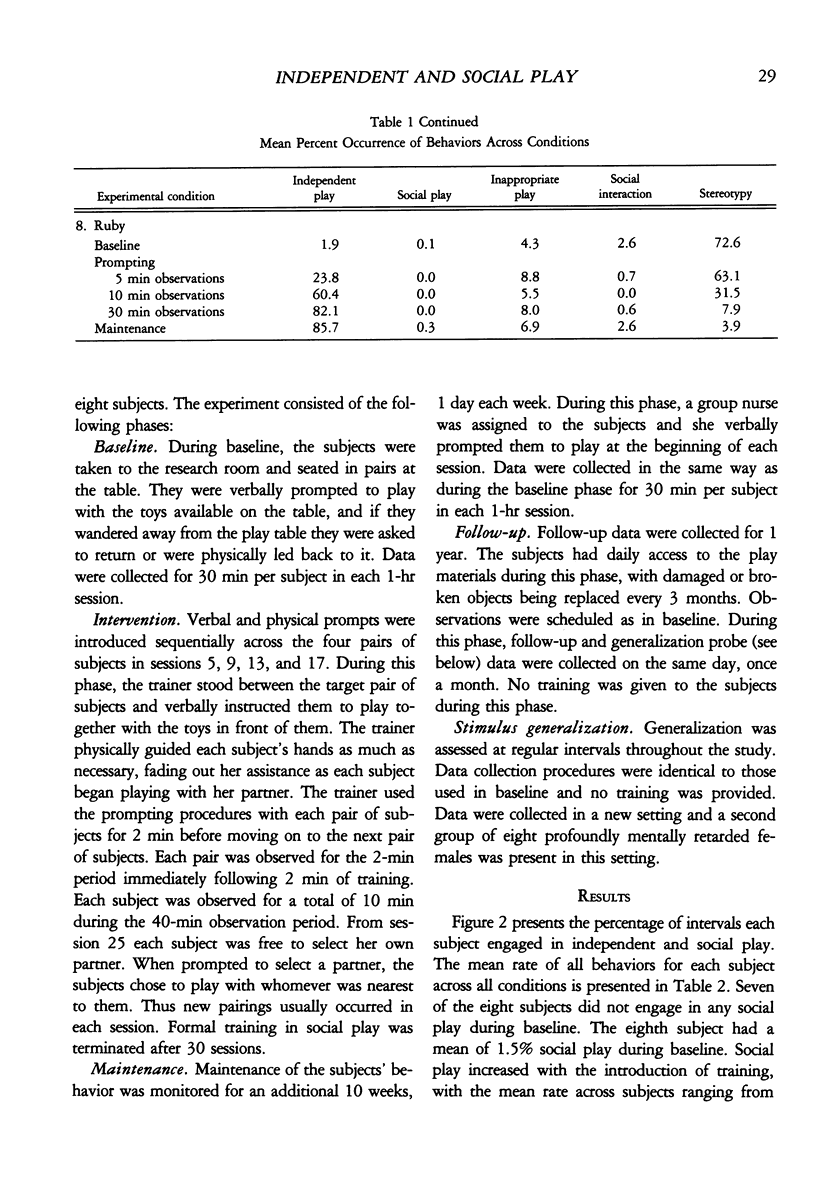
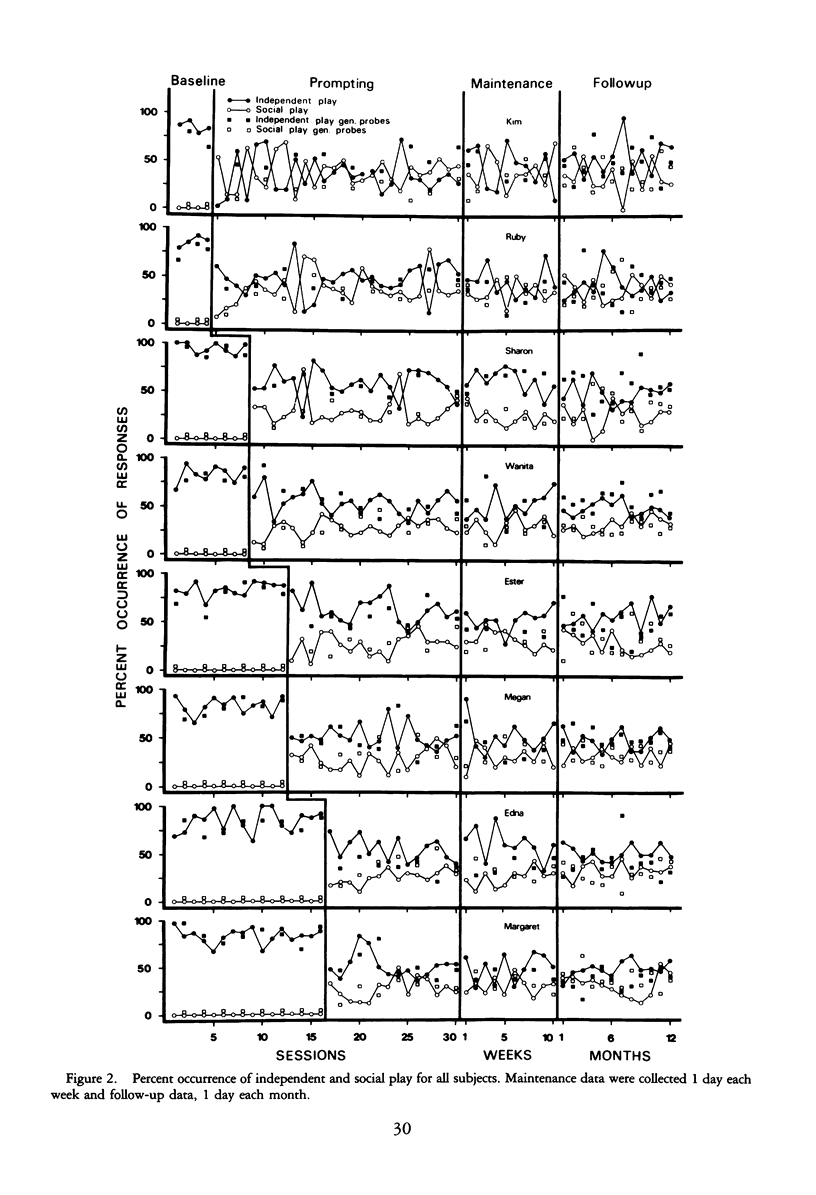
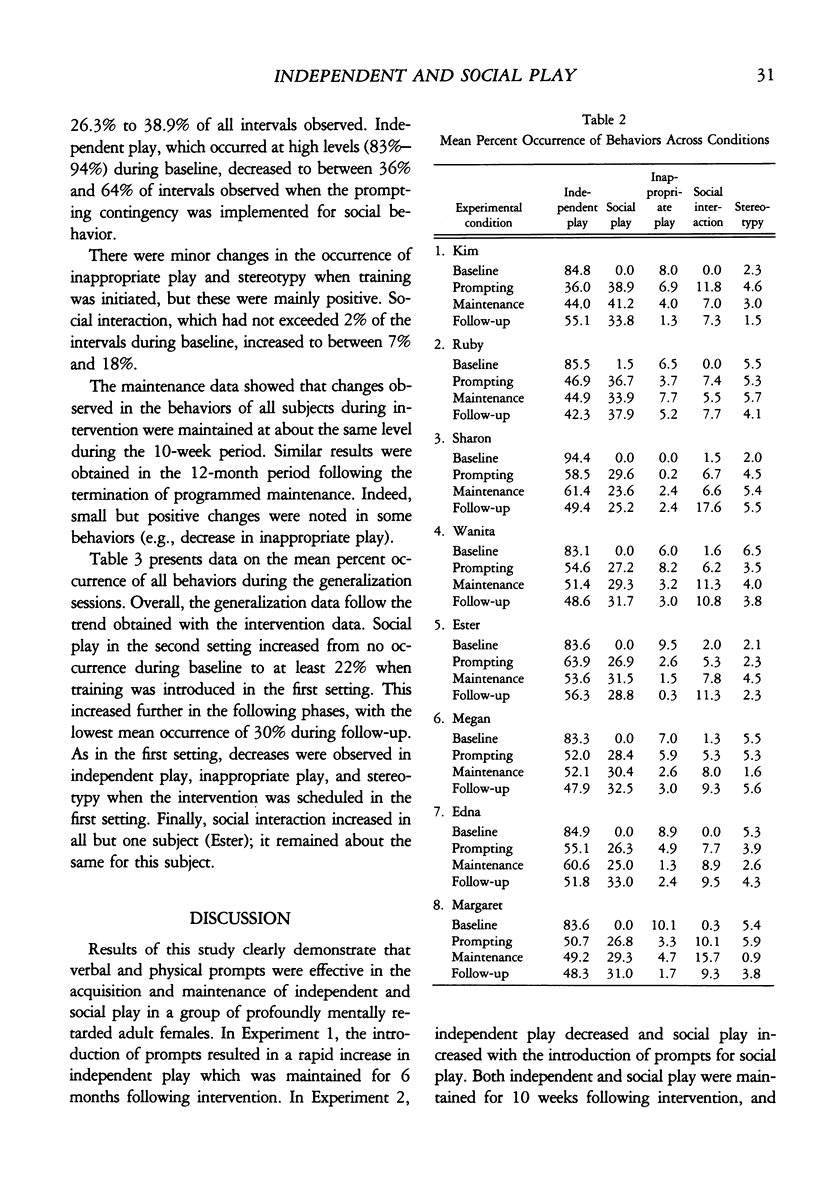
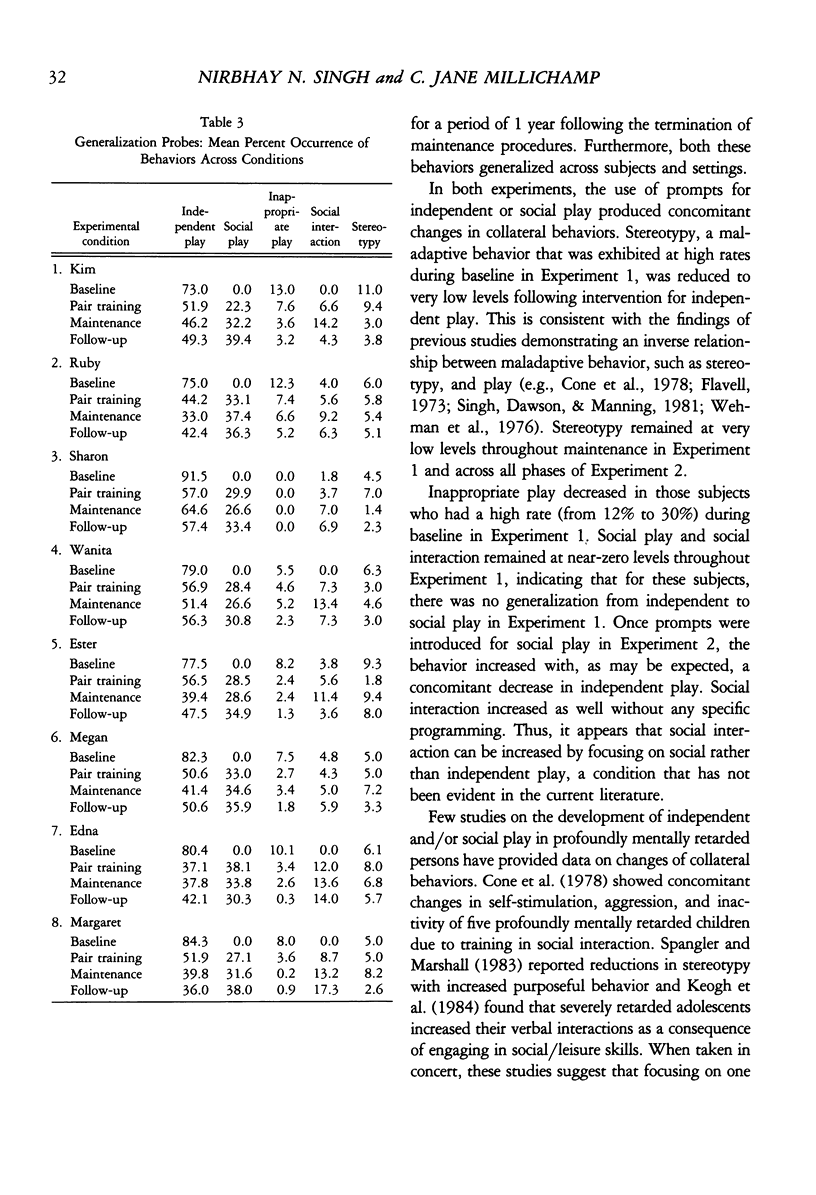
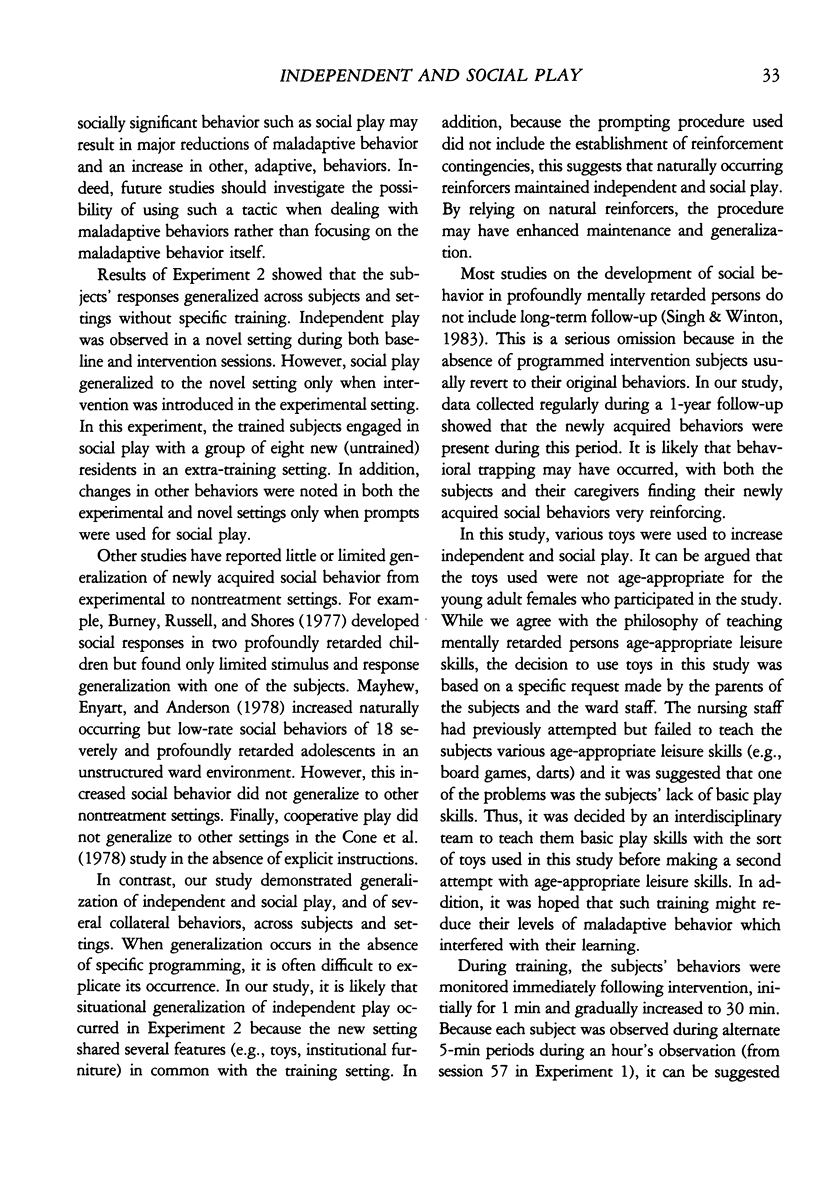
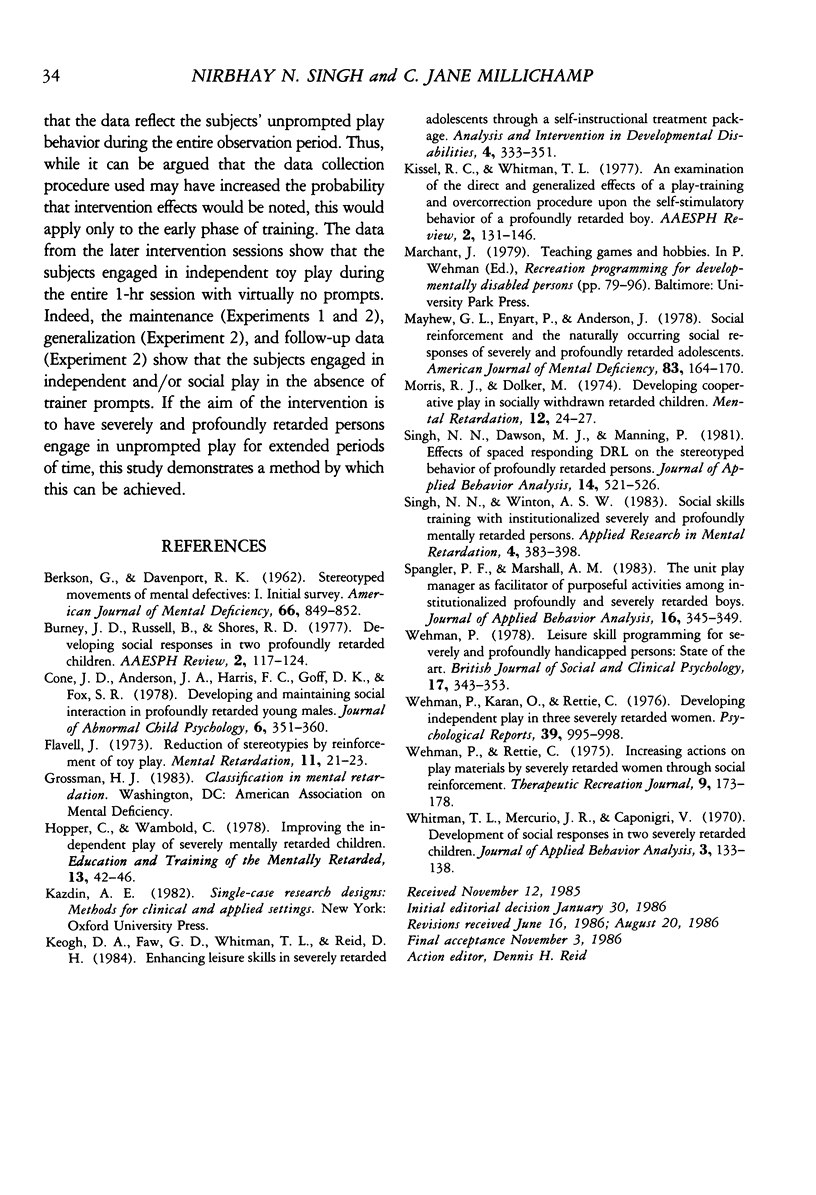
Selected References
These references are in PubMed. This may not be the complete list of references from this article.
- BERKSON G., DAVENPORT R. K., Jr Stereotyped movements of mental defectives. I. Initial survey. Am J Ment Defic. 1962 May;66:849–852. [PubMed] [Google Scholar]
- Cone J. D., Anderson J. A., Harris F. C., Goff D. K., Fox S. R. Developing and maintaining social interaction in profoundly retarded young males. J Abnorm Child Psychol. 1978 Sep;6(3):351–360. doi: 10.1007/BF00924738. [DOI] [PubMed] [Google Scholar]
- Flavell J. E. Reduction of stereotypies by reinforcement of toy play. Ment Retard. 1973 Aug;11(4):21–23. [PubMed] [Google Scholar]
- Mayhew G. L., Enyart P., Anderson J. Social reinforcement and the naturally occurring social responses of severely and profoundly retarded adolescents. Am J Ment Defic. 1978 Sep;83(2):164–170. [PubMed] [Google Scholar]
- Singh N. N., Dawson M. J., Manning P. Effects of spaced responding DRL on the stereotyped behavior of profoundly retarded persons. J Appl Behav Anal. 1981 Winter;14(4):521–526. doi: 10.1901/jaba.1981.14-521. [DOI] [PMC free article] [PubMed] [Google Scholar]
- Singh N. N., Winton A. S. Social skills training with institutionalized severely and profoundly mentally retarded persons. Appl Res Ment Retard. 1983;4(4):383–398. doi: 10.1016/0270-3092(83)90037-1. [DOI] [PubMed] [Google Scholar]
- Spangler P. F., Marshall A. M. The unit play manager as facilitator of purposeful activities among institutionalized profoundly and severely retarded boys. J Appl Behav Anal. 1983 Fall;16(3):345–349. doi: 10.1901/jaba.1983.16-345. [DOI] [PMC free article] [PubMed] [Google Scholar]
- Wehman P., Karan O., Rettie C. Developing independent play in three severely retarded women. Psychol Rep. 1976 Dec;39(3):995–998. doi: 10.2466/pr0.1976.39.3.995. [DOI] [PubMed] [Google Scholar]
- Wehman P. Leisure skill programming for severely and profoundly handicapped persons: state of the art. Br J Soc Clin Psychol. 1978 Nov;17(4):343–353. doi: 10.1111/j.2044-8260.1978.tb00292.x. [DOI] [PubMed] [Google Scholar]
- Whitman T. L., Mercurio J. R., Caponigri V. Development of social responses in two severely retarded children. J Appl Behav Anal. 1970 Summer;3(2):133–138. doi: 10.1901/jaba.1970.3-133. [DOI] [PMC free article] [PubMed] [Google Scholar]


